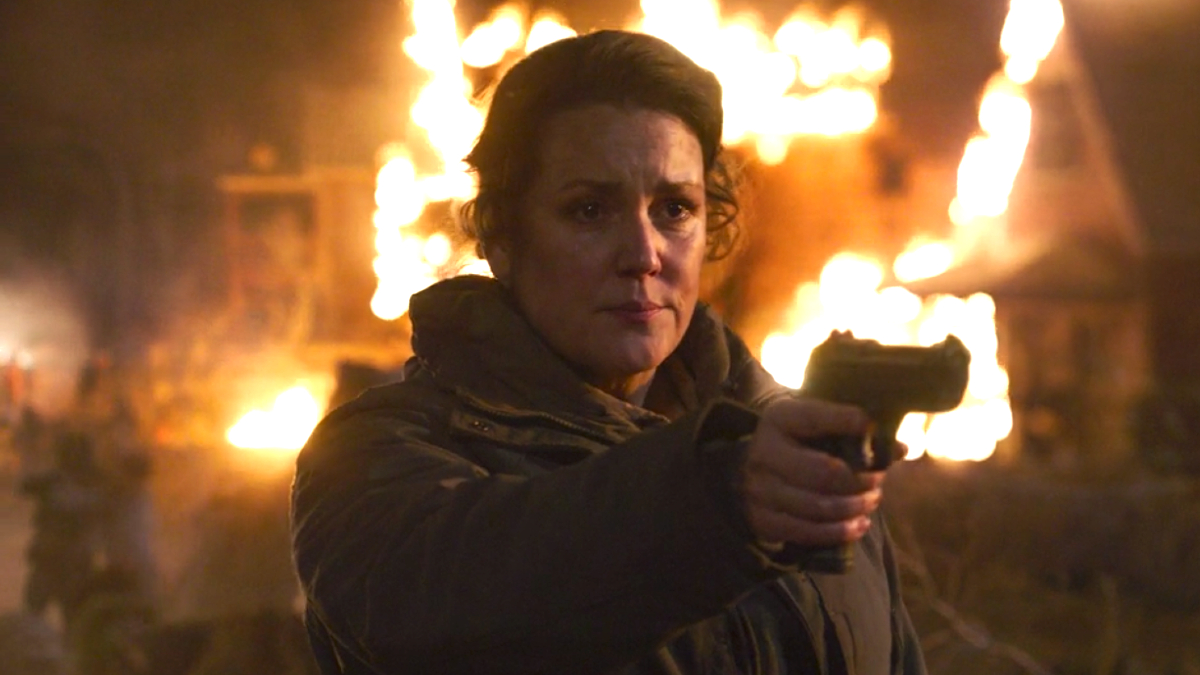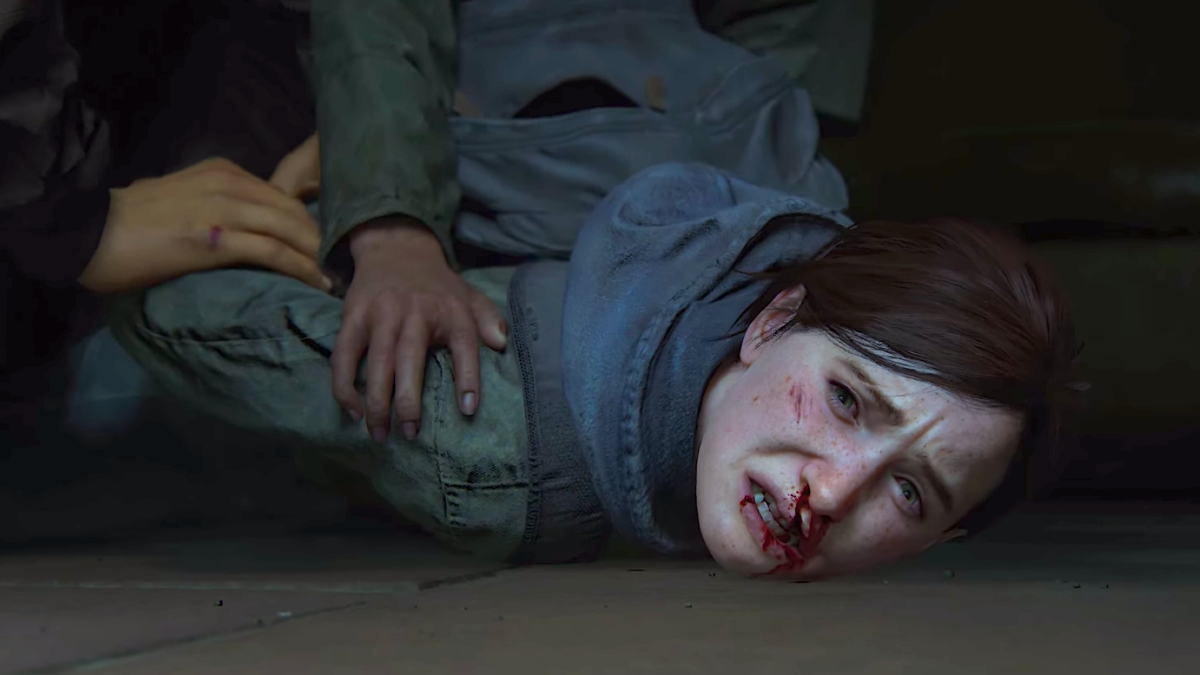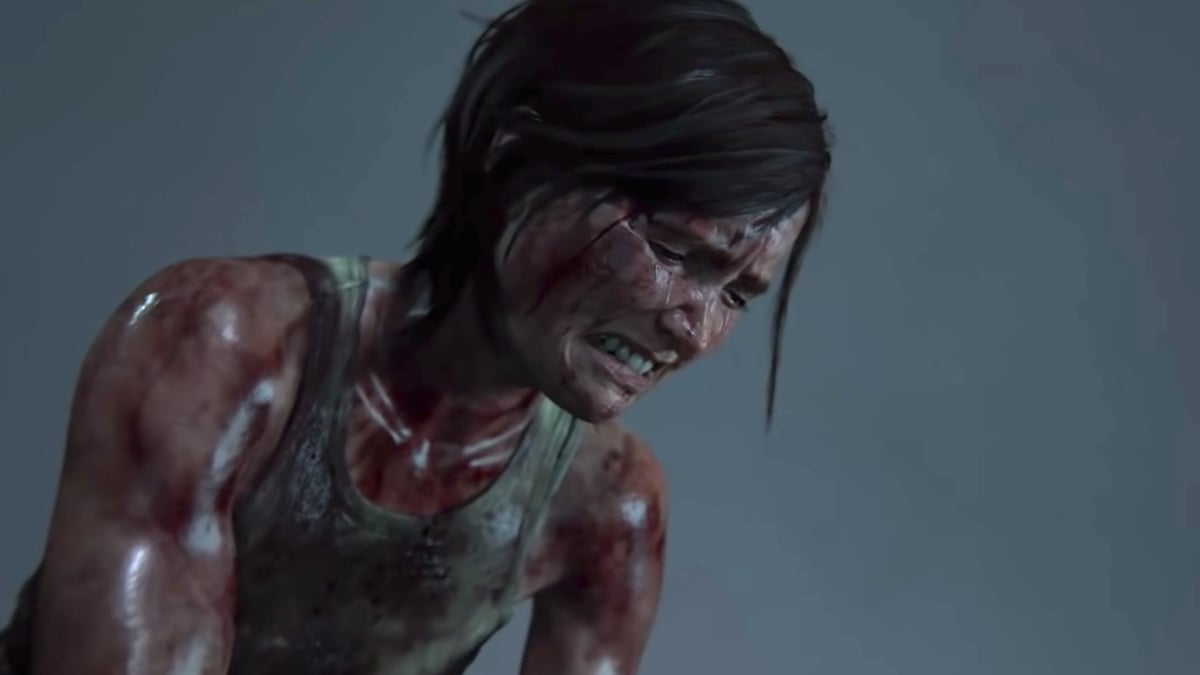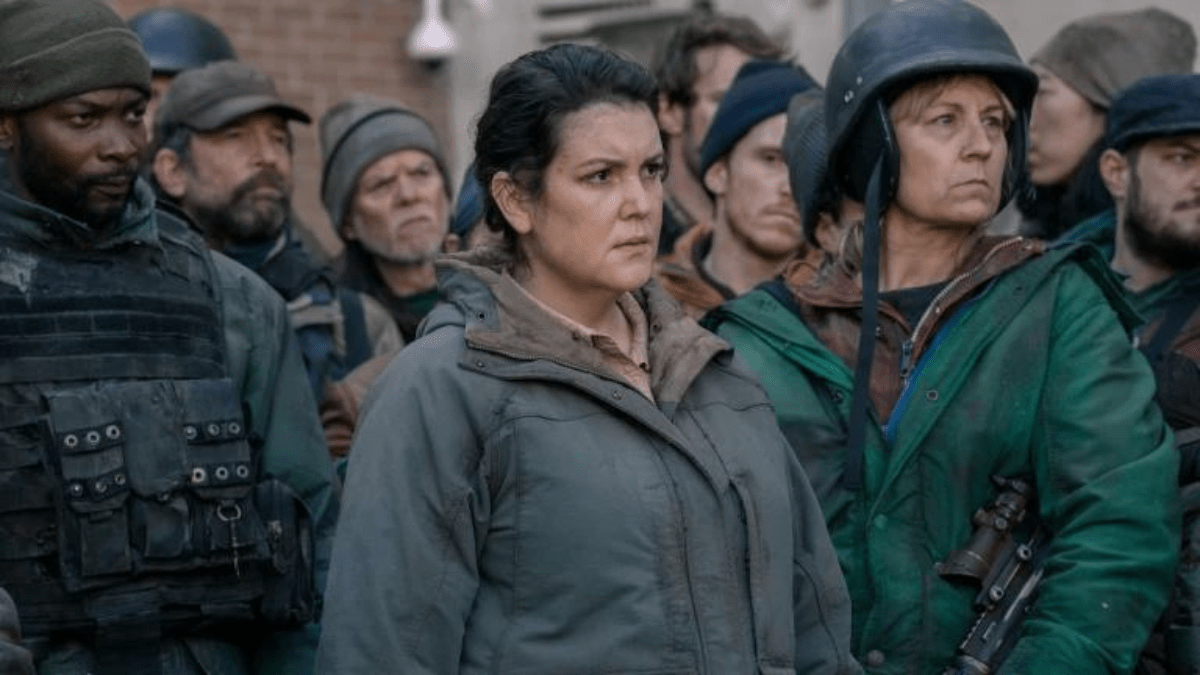Each fresh episode of The Last of Us is a game-changer, as HBO continues to bleed fresh significance into an already-stellar story.
Every change made by the television series — excepting that thoroughly unnecessary slow-mo — has added a fresh, delightful element to the video game’s original story, and some won’t pay off for years.
Take Kathleen. The character is entirely created for HBO’s series, and has no basis in Naughty Dog’s games, but her presence is a clear signal of what is to come. The showrunners laid her out as a storytelling method for Henry, sure, but also as an indicator of the tonal shift viewers will experience in season two and beyond.
Warning: This article contains rampant spoilers for future storylines in The Last of Us on HBO, as well as The Last of Us Part II.
Kathleen is a perfect parallel

Kathleen may not have stood out to every viewer, due to her presence as a short-lived antagonist, but her character is absolutely vital. She is a window into Ellie’s future in more ways than one, and her presence is almost certainly intended as a warning of the tragic turn Ellie’s story will eventually take.
Over the course of two episodes, Melanie Lynskey’s Kathleen establishes herself as the ruthless leader of Kansas City’s resistance group. She’s dedicated her all to overthrowing F.E.D.R.A. and, in particular, tracking down the man she blames for her brother’s death. Henry didn’t actually kill her brother, but he did turn him into F.E.D.R.A. in exchange for vital medication, and sealed his fate in the process.
Kathleen is utterly blinded by anguish and a thirst for revenge by the time audiences are introduced to her, leaving the character completely unconcerned with the consequences of her actions. And consequences there are.
As many viewers noted, Kathleen’s dedicated quest for revenge leads nearly every armed individual in Kansas City into a slaughter, after a failed attempt to run Ellie, Henry, and Sam down with a truck busts a hole straight into the access tunnels where the city’s Infected reside. The resulting horde is hundreds strong, at least, and is hardly slowed by Kathleen’s heavily armed — and armored — men. That leaves hundreds, if not thousands, of unarmed Kansas City residents completely open to slaughter at the hands of the horde she helped unleash.
Kathleen even says as much to Henry, though she’s not intending to reference her own actions. She asks him if he thinks “the whole world revolves around” his little brother Sam, and if he thinks “he’s worth everything.” She unintentionally shines a light on herself with this statement, as she has unilaterally decided — against the wishes of her lost brother — to dedicate all of her recently-liberated men to the hunt for Henry, regardless of the many negatives.
This is a harkening of what is to come at the end of season one — when Joel decides that Ellie’s life is worth more than a cure — but more so what will transpire in future The Last of Us seasons. It’s all laid out in the games, but viewers are getting far more hints in HBO’s series than were provided ahead of Naughty Dog’s Part II.
The biggest spoilers of the story are below, so I implore you — if you’ve never played Part II and don’t wish for the plot to be spoiled, stop reading now.
Early in the plot of Part II, Ellie loses Joel to a painful, brutal cycle of violence that her surrogate father started with his own hands. What Joel set off at the end of the first game, by choosing Ellie over humanity, and slaughtering every Firefly that stood between him and his child, caught up to him in the form of Abby. Daughter of the doctor Joel killed to reach Ellie, Abby — like Kathleen — has been running on hate and revenge for years by the time she catches up to Joel, and she takes all that rage out on his hide.
It is not Abby’s story that I see reflected in Kathleen’s season one arc, however — it’s Ellie’s. See, Abby makes the incredibly foolish decision to not only kill Joel in front of Ellie, but to let she and Tommy live. This allows the cycle of heartbreak and revenge to continue, as Ellie and Tommy then set out to cut their way through Abby’s friends.
Just like Kathleen, Ellie spends much of Part II drowning in grief, seeking some form of comfort in the death of her enemies. But, spoiler alert, revenge doesn’t actually bring relief, and she just finds herself slipping deeper into despair with each fresh kill.

This isn’t enough to stop her, however, despite the knowledge of everything Joel has done. I’m reminded, in particular, of Kathleen’s question to Henry: “Did you ever stop to think that maybe he was supposed to die?”
If anyone in The Last of Us story truly deserved to die, it’s arguably Joel. He’s one of my favorite characters across video games, but it’s undeniable. We love him because he’s flawed, because he’s human, and because he does the wrong thing. We all know Ellie would have chosen to die on that table, but we love Joel because he didn’t let her. He robbed her of that choice, and we celebrate him for it, because it let a charming, foul-mouthed, powerful little girl live to become a woman.
But really, Joel brought his death on himself. And, despite knowing this, Ellie can’t stop herself from seeking revenge. She does so, over the course of several heart-wrenching chapters, and loses a little bit of herself every time. By the time the game concludes, with that awful, incredible fight in the shallows, Ellie is moving on sheer momentum. She’s convinced that Abby’s death will give her peace, and is no longer concerned about the cost.
And, just as there was a cost for Kathleen, there is a cost for Ellie. She loses Dina and JJ — the woman she loves and the child they share — and nearly loses Tommy. She also loses much of herself, as she slaughters her way through people who, like her, were simply seeking retribution for wrongs done, and — in the end — she even loses the only thing that still connected her to Joel. Two of her most vital fingers — the ones she relies on to play the guitar that Joel taught her to love — are lost to her fight with Abby, and Ellie is left, at the end of the game, with her life in tatters, and the knowledge that she did it to herself.

So much of Kathleen’s character feels like a warning that will be ignored. She made the mistake that so many people make, and sought revenge instead of peace. She could have let Henry go, and she — along with all of her people, and the remaining citizens of Kansas City — would have survived, but she allowed hate to drive her instead. As a result, she lost absolutely everything, mere days after she gained freedom from F.E.D.R.A.
Ellie’s headed down the same road, eventually. She, too, will ignore every opportunity to let the hate die. She’ll bypass pleas for her to stop, signs that her actions are poisoning herself and those around her, and even clear indications that the way ahead leads to nothing but pain.
All because she lost something too precious to get back, and she couldn’t — or wouldn’t — let it go.















